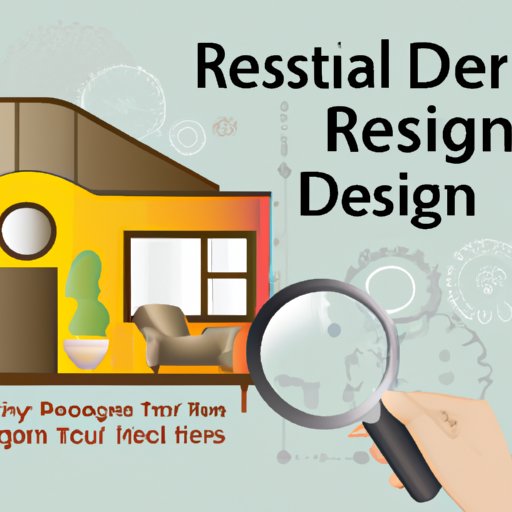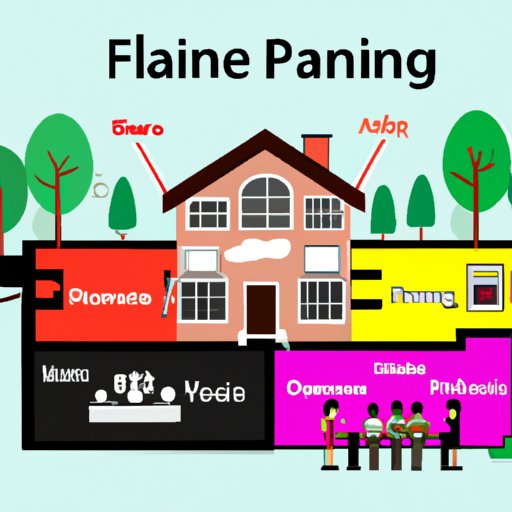Introduction
The home design industry is booming. With an abundance of options for interior decorating and renovations, homeowners are increasingly turning to professionals for help in creating the perfect space. Starting a home design business can be a rewarding endeavor with great potential for success. In this guide, we’ll go over everything you need to know about launching your own home design business.

Overview of the Home Design Industry
Home design is a broad term that encompasses a variety of services related to interior decorating, remodeling, and renovating residential properties. Professionals in this industry may specialize in one area or offer a variety of services, such as painting, wallpapering, furniture selection, flooring installation, lighting, window treatments, and more. Home design businesses also often provide consulting services on projects such as kitchen and bathroom remodels and outdoor living areas.
Benefits of Starting a Home Design Business
Starting a home design business can be a lucrative venture with many benefits. Being your own boss gives you the freedom to set your own hours and pricing structure. You have the opportunity to work with a variety of clients on interesting projects. The potential for growth and expansion is high, and you can even consider branching out into other aspects of the home improvement industry. Additionally, the overhead costs for starting a home design business are relatively low compared to many other types of businesses.

Research the Home Design Industry
Before you launch your business, it’s important to conduct thorough research on the home design industry. Learn about trends and best practices in the industry. Research competitors in your area to get a better understanding of the market. Identify your target market and determine what services they are most interested in. Consider what sets your business apart from the competition.
Create a Business Plan
Creating a business plan is essential when starting any business. Your plan should include goals and objectives, a pricing strategy, a promotional strategy, and financial projections. Set realistic goals for yourself and create a timeline for achieving them. Develop a pricing structure that allows you to make a profit while still remaining competitive. Outline how you plan to promote your business, such as through word-of-mouth advertising, social media, and print materials. Estimate your startup costs and projected income for the first year.
Secure Financing
Starting and operating a business requires capital. Consider the costs of setting up your business, such as purchasing equipment, renting office space, and hiring employees. Explore funding options such as small business loans, crowdfunding campaigns, and angel investors. You may also want to consider seeking support from family and friends who believe in your business.
Obtain Licensing and Permits
Understand the legal requirements for running a business in your area. Depending on the scope of your business, you may need to obtain certain licenses and permits. Contact your local government to learn more about the requirements for your business.
Build Your Team
Hire qualified professionals to help you run your business. You may need to hire employees, such as designers and contractors, depending on the scope of your services. Consider outsourcing tasks such as accounting, web design, and legal services to save time and money.
Develop Your Brand
Establish your business’s brand identity to set yourself apart from the competition. Create a website, social media accounts, and other digital assets to showcase your work. Use consistent branding across all platforms to build recognition and trust among your customers.
Market Your Services
Develop a comprehensive marketing plan to reach potential customers. Consider traditional marketing methods such as print materials, radio and television ads, and direct mail. Utilize online marketing strategies such as content marketing, email campaigns, and search engine optimization. Network with other professionals in the industry and attend trade shows to increase your visibility.
Conclusion
Starting a home design business can be a rewarding and profitable venture. With the right planning and preparation, you can build a successful business that stands out from the competition. By conducting research, creating a business plan, securing financing, obtaining the necessary licenses and permits, building a team, developing a brand, and marketing your services, you can launch your own home design business with confidence.
(Note: Is this article not meeting your expectations? Do you have knowledge or insights to share? Unlock new opportunities and expand your reach by joining our authors team. Click Registration to join us and share your expertise with our readers.)
